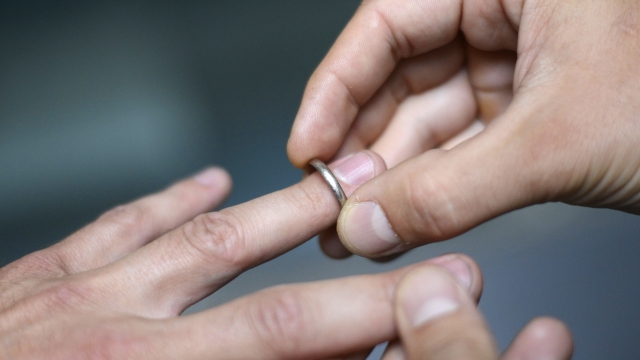I’m going to level with you here: I’ve suffered from more than my fair share of vagina envy. Okay, I guess technically it’s vulva envy, because it’s pretty difficult to actually envy someone else’s vagina – we’ll get to that in a minute. I could go off on some little tangent about how “everyone is the same on the inside” and all that nonsense, but that would just be silly. (Even though, realistically, most vaginas are pretty similar on the inside.)
Basically, though, that entire region is just weird. I can only imagine that it’s even weirder for those who weren’t born with their vaginas, or who haven’t taken the time to fully explore the situation down there. As women who love other women (assuming you also have sex with those other women), we’ve got a bit of a unique vantage point on the whole subject. I think we’re more prone to “vagina envy” than straight women are because, in general, we’ve probably seen more of them. (Vulvas, that is – I very rarely encounter a straight woman in my day-to-day routine, but I also don’t leave my house as often as I probably should.)
Even if you’ve had your vagina your entire life, most likely there are things you don’t know about it. How many of these things did you know – and are there any other interesting tidbits you think we should all know?
1. You can’t (usually) see the vagina.
We, as a society, tend to use the word vagina to mean the female sexual organs. That’s actually incorrect. The part that’s most commonly referred to as the vagina is actually the vulva. The female sexual organs are a collection of a bunch of different bits, and the actual vagina is up inside of everything else. I’m sure you can imagine that there are certain scenarios when you might be able to physically see the actual vagina, such as after some extreme fisting. (I’m not interested in it, personally, but if it works for you, you do your thing.)
The moral of the story: Your vulva consists of all the external parts. Your vagina is on the inside. Practice using the correct terminology.
2. Your vagina does not need to be cleaned.
You know how you sometimes get really wet, without being even remotely in the mood? This is your vagina cleaning itself. It actually does a great job all on its own, too – trying to help it out (such as douching, or even rinsing inside with plain water) can cause a nasty infection, called bacterial vaginosis. It can get swollen, and it will be incredibly uncomfortable. The good bacteria in your vagina’s secretions act as a lubricant, and help to protect from bad bacteria.
Your vulva, on the other hand, should be washed regularly. Sometimes bits of debris (lint from your underwear, little toilet paper balls, period blood…) can get caught up, and should be cleaned off periodically. Just make sure you limit your cleaning to the outside, and let the good bacteria inside do its job.
3. Healthy vaginal discharge is free from strong odors, and usually colorless.
As awkward as that unexpected moisture can be, it’s usually completely normal – and no one but you can smell it. We tend to smell ourselves more than we smell others, particularly if it’s something we’re a bit insecure about. But, rest assured, if there was actually something going on with your vagina’s smell, your partner would most likely let you know.
You should pay attention to your discharge, though, particularly any changes. It’s completely normal to have clear or white discharge, or to have some brown discharge if you’ve recently gotten off your period. If it’s suddenly not clear, or if it smells really strong, make a note to talk to your doctor about it – this could be a sign of infection. Your discharge should never result in any itching or soreness, either. If you’re experiencing any sudden changes or inconsistencies, it’s best to have it checked out to rule out the possibility of infection.
4. Your vagina needs exercise – just like you do.
Your vagina isn’t exactly a muscle – but there are muscles in your vagina, and they need to be exercised. Certain situations put you at higher risk for muscular weakness in the area – so if you’ve given birth, gone through menopause, gained some weight, or if you’re a smoker, you might want to practice your Kegels a little more often than lower-risk-category women. Just like any other muscle in the body, you’ll need to keep it strengthened, otherwise it can get flabby. (It’s true!)
Kegel exercises might sound intimidating if you’ve never done them, but really they’re pretty simple – you can even do them without anyone knowing. Sitting at your desk with nothing else to keep you occupied? Do a little squeeze – it should feel like you’re trying to cut off your pee, mid-stream. As a side note, you shouldn’t do your Kegels while you’re peeing – that can cause a whole host of problems. Any other time you’re sitting or lying down is totally fair game, though. (If you and your partner have penetrative sex, I find that this is an amazing time to do them.)
5. A “loose” vagina has nothing to do with promiscuity.
For at least as long as I’ve been alive, there’s been this stigma surrounding women who have a loose vagina. They’re said to have penetrative sex with multiple partners, on a frequent basis. They’re often labeled with all sorts of nasty, derogatory names – over something that’s simply not true. If having sex with multiple partners really loosened the vaginal tissue (which, by the way, is designed to expand enough to push out a baby), then women who have had a lot of sex with the same person would be just as much at risk of “stretching out” as a woman who had a slew of one-night stands. In most cases, single women won’t have as much sex as someone who’s in a committed relationship – it just seems like they have more, because it’s a larger portion of the time they spend with that certain someone.
There are a number of reasons why one vagina may be looser than others, and none of them involve having sex with multiple partners. The most common reasons for “stretching” include the recent birth of a child (vaginally, of course) or neglecting those super-important Kegel exercises. The great news is that those very same Kegels can help to tighten a vagina – without dangerous surgeries or creams to make you “swell up” down there. If you want to tighten your vagina, the absolute best choice is to follow tip #4, above – save your money, and don’t risk your well-being. Seriously. It’s not that big of a deal.
6. “Neo-vaginas” are vastly different than “natural vaginas”.
Gynecologists still don’t fully understand the complexities of a vagina created through transitional surgery, but it’s clear that they are very different than “natural vaginas”. This makes it particularly complicated, as doctors aren’t really sure what the proper care is at this point. It is advised that you share any concerns with your doctor, and it’s advised that you take extra precautions to guard against infection, particularly while you’re still healing.
Although the specifics of optimal care are still largely under-researched, trans women should use special douches – generally a saline rinse – to help keep everything clean. Since these vaginas are basically hand-crafted works of art, rather than natural biological organs, trans women don’t have the benefit of the automatic bacteria production – any bacteria in that area is a bad thing. Be safe, and be sure that you’re taking proper care of your new vagina.
7. Neo-vaginas need to be dilated – regularly.
For those of us who have had vaginas our whole lives, the idea of penetrating ourselves for any reason other than sexual gratification can seem a bit odd. But for trans women, it’s absolutely essential: Their vaginas are made from tissues that originally had a different function and form. They will need to use a vaginal dilator, which is a phallic tube that stretches and/or maintains the opening until it has completely healed.
Immediately following the surgery, it’s essential that the neo-vagina be dilated for at least 30 to 45 minutes at a time, at least six days a week. Once the vagina has reached the desired capacity, penetrative sex can make the process more enjoyable. (It also won’t need to be done as often anymore, but a number of trans women decide to keep it up – because hey, why not!)
8. Yeast infections are super common – we just don’t talk about them much.
At least 75% of cis women (and pre-operative trans men) will experience a yeast infection in their lifetime, and it is a truly uncomfortable experience. Some women are more prone to yeast infections, particularly when on antibiotics, as these will kill the good bacteria as well as the bacteria they’re meant to fight. Cis men (and pre-operative trans women) are also at risk of developing a yeast infection, although it is less common. Unfortunately, sexual contact can spread the bacteria to your partner, too.
Thankfully, yeast infections are generally harmless, as long as they’re treated promptly and properly. Thankfully, there are a number of treatments that can be performed without any embarrassing trips to the doctor – even though there’s no reason to be embarrassed about something that literally happens to almost everyone. (Hint: Going commando is helpful in preventing the infections in the first place, as is washing up with a mild soap after sex. There are certain pH-balanced soaps created specifically for this purpose – just make sure you’re not going inside with them.)
9. Taking good care of your vagina can help prevent most yeast infections.
If you’ve ever experienced the (dis)pleasure of a yeast infection, chances are, you’ll want to do whatever it takes to prevent it from happening again. While some people may be more prone to the infections in the first place, it’s not completely unavoidable. Good vaginal care, including those common-knowledge things like “wipe front to back” and “don’t receive sex while you’re showing symptoms”, can help prevent the spread of yeast infections – or, at the very least, help shorten the time you’ll be suffering with them.
It’s also a good idea to drink plenty of water – at least two liters per day, or about a half-gallon for our US-based readers. As nice as bubble baths are, they’re not good news for your vagina either, nor are scented soaps and shower gels. Tight-fitting clothing (including your underwear) should be avoided, or at least minimized, as there is a known connection between keeping the area cooped up and being more prone to infection. If you’re comfortable doing so, you should probably be going without underwear (or tights!) as much as possible.
10. Always pee after sex – and as soon as possible when you feel the need.
Most women know that penetrative sex should be immediately followed by a quick trip to the bathroom. If you’ve been getting enough water and not holding your urine in, it shouldn’t be too difficult to go. What many don’t know is that holding in your pee can increase the likelihood of a urinary tract infection (which is not something you want to experience), as can oral sex if not followed by a potty break.
Urinary tract infections are caused by bacteria. UTI is really a blanket term, since any foreign bacteria in the vaginal area can cause an infection. We think about this with penetrative sex, as we’re introducing a foreign object into the vagina, but your mouth is one of the most bacteria-laden parts of your body – so oral sex can cause just as many problems down there as using toys or your fingers. (It’s less likely if you’ve used a dental dam without a powder coating, but it is still possible – better safe than sorry!)
11. Always clean your toys and wash your hands before sex – not necessarily after.
Of course, it’s a good idea to clean them twice, both before and after. But if you’re strapped for time, it’s significantly more important to thoroughly wash anything that’s going to come into contact with vaginal moisture before it actually comes into contact. This is particularly true for those who are more prone to infections, but even someone who has never had a UTI before can experience the discomfort with little actual warning.
If you’re using any barrier methods, you’ll want to wash those, too. Some dental dams have a powder coating to prevent them from sticking together, and most latex gloves (commonly cut up for makeshift dental dams) will have a similar powder coating on the outside. This powder definitely counts as a foreign object that can penetrate the vagina – even if you’re not having penetrative sex. And, while condoms are a great idea for using toys, they often have spermicides that can create their own problems. If you don’t need the spermicide, opt for a condom without it.
12. No two vaginas (or vulvas) are exactly the same.
Many of us grew up with the idea of “porn vaginas” being the ideal. Quite frankly, this is probably one of the most self-esteem-damaging body image issues that face the modern woman. Every vagina has a slightly different color, different shape, and different size. Labias are all different, too, and it’s even possible (and likely!) that one half of your vulva won’t quite match up with the other half.
Your labia looks different at different times, too. During orgasm, for example, the labia will be darker and larger than it usually is, due to the increased blood flow to the area. This is definitely not a bad thing – that darker, “fatter” labia is a sign that you’re probably enjoying yourself, and should be celebrated!
13. If your partner gives a damn what you look like down there, she’s the problem – not you.
If your partner truly likes women, he or she isn’t going to care if your vulva looks pretty, or if your vagina isn’t “tight enough”, or if you haven’t shaved in a while. (Although oral sex is a bit uncomfortable with sharp stubble, most of us know how to work around it pretty well.) As long as you’re taking care of things, there’s no such thing as a bad smell from a healthy vagina – perhaps it could smell a bit strong, but most likely, your partner won’t care.
My partner happens to love the strong smell that comes after a good workout, although personally I don’t like the way I smell at that time. Does it mean there’s a problem with my vagina? Not at all – it’s just a stronger scent, and for those who love the smell of a healthy vagina, a stronger smell is not a bad thing at all. If your partner judges you for anything involving your lady bits, she is not the right woman for you!
[interaction id=”564b493e737e4fee1dbe4a8e”]









